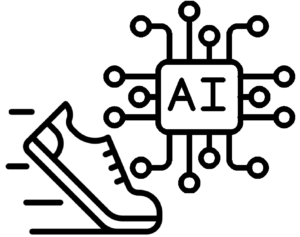MachineLearnAthon: Developing ML Competencies at Universities
 The MachineLearnAthon project aims to further the increasingly relevant Machine Learning (ML) competence and skills among students from various study programs. To this end, we deploy a new teaching concept complementing ML challenges with micro-lectures. Our innovative concept promotes motivation and action-oriented learning through project-based tasks and gamification elements. In addition, the students develop the capabilities necessary for working in interdisciplinary and international teams.
The MachineLearnAthon project aims to further the increasingly relevant Machine Learning (ML) competence and skills among students from various study programs. To this end, we deploy a new teaching concept complementing ML challenges with micro-lectures. Our innovative concept promotes motivation and action-oriented learning through project-based tasks and gamification elements. In addition, the students develop the capabilities necessary for working in interdisciplinary and international teams.
Due to the accelerating pace of digitalization in all aspects of life, data literacy in general, and ML competence, in particular, are increasingly relevant skills serving to develop trustworthy, safe, fair, accepted, and useful solutions for complex societal and industrial problems.
There are four main problems associated with teaching ML. Firstly, while ML application areas abund across disciplines, ML content is mostly underrepresented among disciplines other than Computer Science. Secondly, real-world industrial data, which is required to build convincing use cases for teaching, is hard to come by. Thirdly, domain knowledge is often required to effectively evaluate and deploy ML solutions. Finally, ML can be a difficult subject for students with little programming experience. The MachineLearnAthon seeks to alleviate these problems.
By addressing students of Engineering, Business Administration, and Logistics with little to no ML experience, we seek the “democratization of ML”. Furthermore, we address Computer Science students with some knowledge of statistics and ML who are lacking the experience of working on real-world data sets in interdisciplinary teams.
To curtail the data availability and domain knowledge problems, we pool resources from a broad spectrum of project partners. In our experience, setting up high-quality real-world datasets is a time-consuming task. First, companies need to be convinced to provide use cases and data. In many cases, data must be additionally anonymized and prepared. Last but not least, the use-case domain needs to be sufficiently detailed. The international and interdisciplinary nature of the MachineLearnAthon consortium serves to make the use-case acquisition and preparation considerably more manageable.
To make learning ML easier, we build didactic concepts centered around ML competitions, micro-lectures, and tool introduction units. Challenges are at the heart of our concept, because of their motivating nature, for people with some foundational experience. Rather than following classical lecture formats, we modularize the content provided to students using a micro-lecture and tool tutorial format. This allows teachers from partner universities to piece together the theoretical content required for tackling a particular challenge in a minimal, student-skill-level-appropriate fashion.
Overall, our project serves to accomplish the goals of increasing ML awareness and skill (i), clarifying ML risks and limitations (ii), advancing data literacy (iii), and fostering interdisciplinary and international cooperation (iv) in an action-oriented fashion (v), for students and teachers alike. The challenges at the heart of the MachineLearnAthon offer different difficulty levels (1), reusable pre-challenge micro-lectures (2), ML tool introduction units (3), and open online data generators (4).
The project consortium involves Prof. Anne Meyer from the Faculty of Mechanical Engineering of the TU Dortmund University, Prof. Arthur Schweidmann from the Chemical Engineering Department of the TU Delft University, Prof. Michal Tkác from the Business Economy Faculty of the University of Economics in Bratislava and Prof. Radwa Mohamed El Emam El Shawi from the Department of Computer Science of the University of Tartu.
Gefördert durch
Partner
Laufzeit: 2023 – 2026

